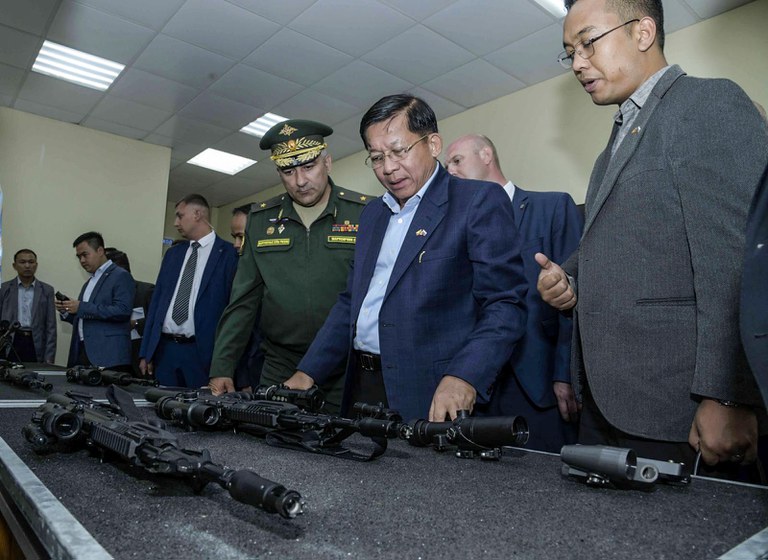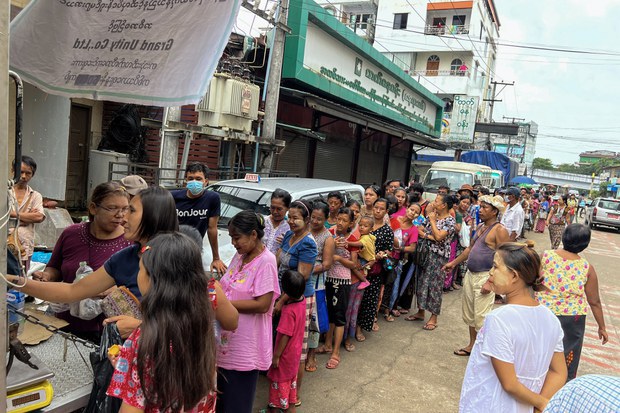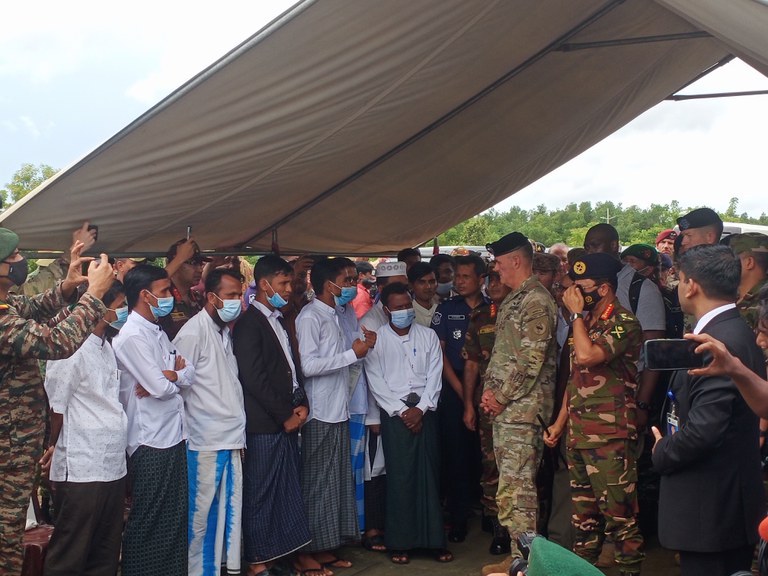
Dud stock trade by senator’s daughter exposes Cambodian tax loophole
A Cambodian senator’s daughter gambled U.S. $8 million on the purchase of shares in an American medical technology company through a Singaporean broker – a transaction conveniently completed before the adoption of a double taxation treaty between Cambodia and Singapore – regulatory filings reviewed by RFA show. Had the investment worked out as planned, Lau Sok Huy expected returns in the realm of $50-60 million, and could have avoided up to $12 million in Cambodian taxes. But the investment flopped. Seven years after she became the second-largest shareholder in Tomi Environmental Solutions Inc, Sok Huy is down some $6.3 million and furious, according to the company’s founder and a fellow shareholder familiar with the deal who spoke with RFA. The investment – equivalent to more than 3,000 years of the average Cambodian salary – is one Sok Huy will likely have to write off as a loss. Tomi’s share price has dipped so low that it currently risks losing its listing on the Nasdaq Capital Market. But the structure and sequencing of the deal sheds a light on how well-to-do Cambodians stand to benefit from the double taxation agreement. Such agreements are viewed by advocates as a boon to trade and investment between nations, but they can also offer a way for wealthy investors to avoid taxes. Regulatory disclosures filed during Sok Huy’s acquisition of the Tomi shares strongly suggest the deal – in which she loaned the money to her broker who had purchased the shares, and then took the shares as repayment for the loan – was tailored to benefit from the double taxation agreement. The loan behind the deal was signed in January 2016, but was amended in May of the same year, just three days after the tax treaty was signed. Sok Huy’s politically connected background raises questions about whether it was appropriate for her to benefit from the agreement. Her father, Lau Ming Kan, is a longtime senator for the ruling Cambodian People’s Party, which has governed the country in one form or another for three decades. One of the final steps in any treaty becoming law in Cambodia – including the double-taxation agreement with Singapore – is ratification by the Senate where he sits. Sok Huy’s parents are also no strangers to investing in Singapore, a regional financial hub viewed by some as a tax haven. Her mother Choeung Sopheap, a confidante of Cambodian Prime Minister Hun Sen, holds $36.5 million in shares in a Singapore-based company that owns a Cambodian corporation with an exclusive license to import liquid natural gas to Cambodia. Those assets are among the more than $230 million in assets that RFA has identified as being held in Singapore by politically connected Cambodians. The DTA Double-taxation agreements, often referred to by the acronym DTAs, are designed to ensure that companies or individuals do not get taxed on the same profits twice when doing business overseas. When two countries sign a DTA, the hope is that it will promote trade and investment between both nations. This particular treaty appears to have paid off. By the end of last year, Singapore was Cambodia’s second-largest source of foreign investment, having barely figured in the rankings half a decade earlier. A business consultant with more than a decade’s experience in Phnom Penh told RFA they viewed the agreement as a net positive for Cambodia. “A DTA can help eliminate double taxation, and for investors coming into Cambodia, that’s fairly important. So, in that sense, they’re fairly useful, and also very widespread and standard around the world,” the consultant said, requesting anonymity due to the potential professional repercussions for speaking publicly on a sensitive topic. “Can the wealthy take advantage of them to reduce their tax bill as well? Absolutely,” the consultant added. “But they already have other means of doing so. So, of all the ‘sins’ here [in Cambodia], I wouldn’t see that as being a meaningful one.” That’s not an analysis everyone would agree with. In late 2016, the World Bank published a blog by two of its senior employees – Jim Brumby and Michael Keen – that asked whether tax treaties like DTAs are a “boost or bane for development” in lower-income countries, such as Cambodia. They were not convinced. “Developing countries have used them with the intention of boosting economic development. The evidence for that is weak,” Brumby and Keen wrote. “The problem is that tax treaties – and the international system of taxation more generally – are highly complex and have unleashed unforeseen consequences.” “Multinational companies, with much at stake, can use treaties to route income through third countries to exploit favorable tax treaties. Tax authorities, particularly in developing countries, are finding it hard to counter such ‘treaty shopping,’” Brumby and Keen added. Despite having assets and businesses in multiple countries, Sok Huy does not fit the traditional definition of a multinational company. But her family often behaves like one, as do many other powerful clans in Cambodia – negotiating sweetheart deals with the government that are unavailable to smaller businesses with less political clout and cash in the bank. If the Lau family’s lawyers and accountants have clocked on to the Singapore loophole, it seems likely the financial professionals advising Phnom Penh’s other leading families will have too. So how does it work? People pass by the Nasdaq Market Site in Times Square in New York City, U.S., Feb. 7, 2018. Credit: Reuters/Brendan McDermid The deal Between May and July 2015, Singaporean broker Boh Soon Lim snapped up $8 million of Tomi shares, then accounting for roughly 11% of the company, according to regulatory filings lodged with the Securities and Exchange Commission, the U.S. stock market regulator. He bought the shares in the name of Arise Asset Management Pte Ltd, a Singapore-registered company in which he is majority owner. In the SEC filings he described the money for the purchase as coming from Arise Asset Management’s working capital. The term refers to the total cash available to the firm…





